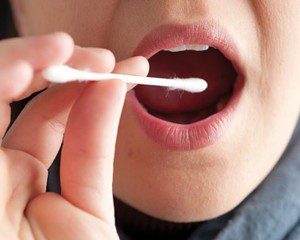By Eric M. Folkens, M.D., Family Medicine – Bradenton/Lakewood Ranch/Sarasota Urgent Care Walk-In Clinics
 Every four minutes someone is diagnosed with a blood cancer; 15 people each hour, 360 people every day. You could be the cure they need. Each year, more than 100,000 American, ages 0-74, are diagnosed with life-threatening illnesses where bone marrow transplantation from a matched donor is their best treatment option.
Every four minutes someone is diagnosed with a blood cancer; 15 people each hour, 360 people every day. You could be the cure they need. Each year, more than 100,000 American, ages 0-74, are diagnosed with life-threatening illnesses where bone marrow transplantation from a matched donor is their best treatment option.
Blood cancer does not discriminate, if effects everyone, even children. Somewhere a patient is hoping someone like you registers to become a marrow donor.
A bone marrow transplant (also called a BMT) is a potentially life-saving treatment for some patients who have leukemia, lymphoma, or a genetic metabolic or immune system disorder. A bone marrow transplant replaces a patient’s diseased blood-forming cells with healthy cells from a donor.
A well-matched donor is important to the success of a transplant. Doctors look for a marrow donor with a human leukocyte antigen (HLA) tissue type that closely matches the patient’s. HLA are proteins, or markers, that the immune system uses to recognize the cells that belong in the body and those that do not.
Because tissue type is inherited, you might expect that a family member would be the best match. However, only 30 percent of patients will have a relative who matches and is able to donate. The other 70 percent need someone like you to donate their healthy marrow.
Even with more than 18.5 million potential marrow donors, patients of racially and ethnically diverse backgrounds are finding matches less often. Because tissue type is most likely to match someone of the same race and ethnicity, donors of these racial and ethnic heritages are especially needed:
– American Indian or Alaska Native
– Asian
– Black or African-American
– Hispanic or Latino
– Native Hawaiian or Other Pacific Islander
– Multiple race
A close match between a patient’s and donor’s tissue type can improve the chances of a successful transplant. When a patient searches for a donor, sometimes he or she finds a closely matched donor, sometimes not. A patient could be waiting for someone like you.
To join the bone marrow donor list, all it takes is a swab of the inside of your cheek, in order to provide the DNA needed to identify if he or she is a bone marrow match for someone. You will not experience any pain during the swab, but you might just eliminate someone else’s pain.
10 QUICK FACTS ABOUT BONE MARROW DONATION
1. A bone marrow transplant can save the lives of people battling leukemia, lymphoma, and other blood cancers.
2. 70% of patients in need of a bone marrow transplant do not have a matching donor in their family.
3. Leukemia kills more children every year than any other cancer.
4. To register as a bone marrow donor, a person swabs the inside of his or her cheek.
5. 6 out of 10 patients never receive the unrelated transplant (a transplant from a non-family member) that they need.
6. Donating bone marrow can occur in one of two ways:
– Blood is taken out of a donor’s arm. That blood is put in a machine, and stem cells are separated and the blood is returned through the other arm.
– A donor has marrow cells extracted from the hip bone.
7. A patient’s likelihood of finding a donor that will give them bone marrow
ranges from 66%-93%, depending on race or ethnicity. The likelihood
of finding a donor is estimated at:
– 66% for African American patients
– 72% for Hispanic or Latino patients
– 73% for Asian and Pacific Islander patients
– 82% for American Indian and Alaska Native patients
– 93% for White patients
8. After donation, bone marrow replaces itself within four to six weeks.
9. To be a bone marrow donor in America, a person should be between 18 and 60 years old and in good health.
10. Donors giving from their hip bones are put under anesthesia, and therefore they do not feel pain during the collection procedure.
Sarasota Urgent Care
6272 Lake Osprey Dr., Sarasota, Fl 34240
(941) 907-2800 | www.SarasotaUrgentCare.com
Facebook: Facebook.com/SarasotaUrgentCare
Bradenton Urgent Care
4647 Manatee Avenue West
Bradenton, Fl 34209
(941) 745-5999 | www.BradentonUrgentCare.com
Facebook: Facebook.com/BradentonUrgentCare
Lakewood Ranch Urgent Care
9908 S.R. 64 East, Bradenton, Fl 34212
(941) 747-8600 | www.LWRUC.com
Facebook: Facebook.com/LWRUC









